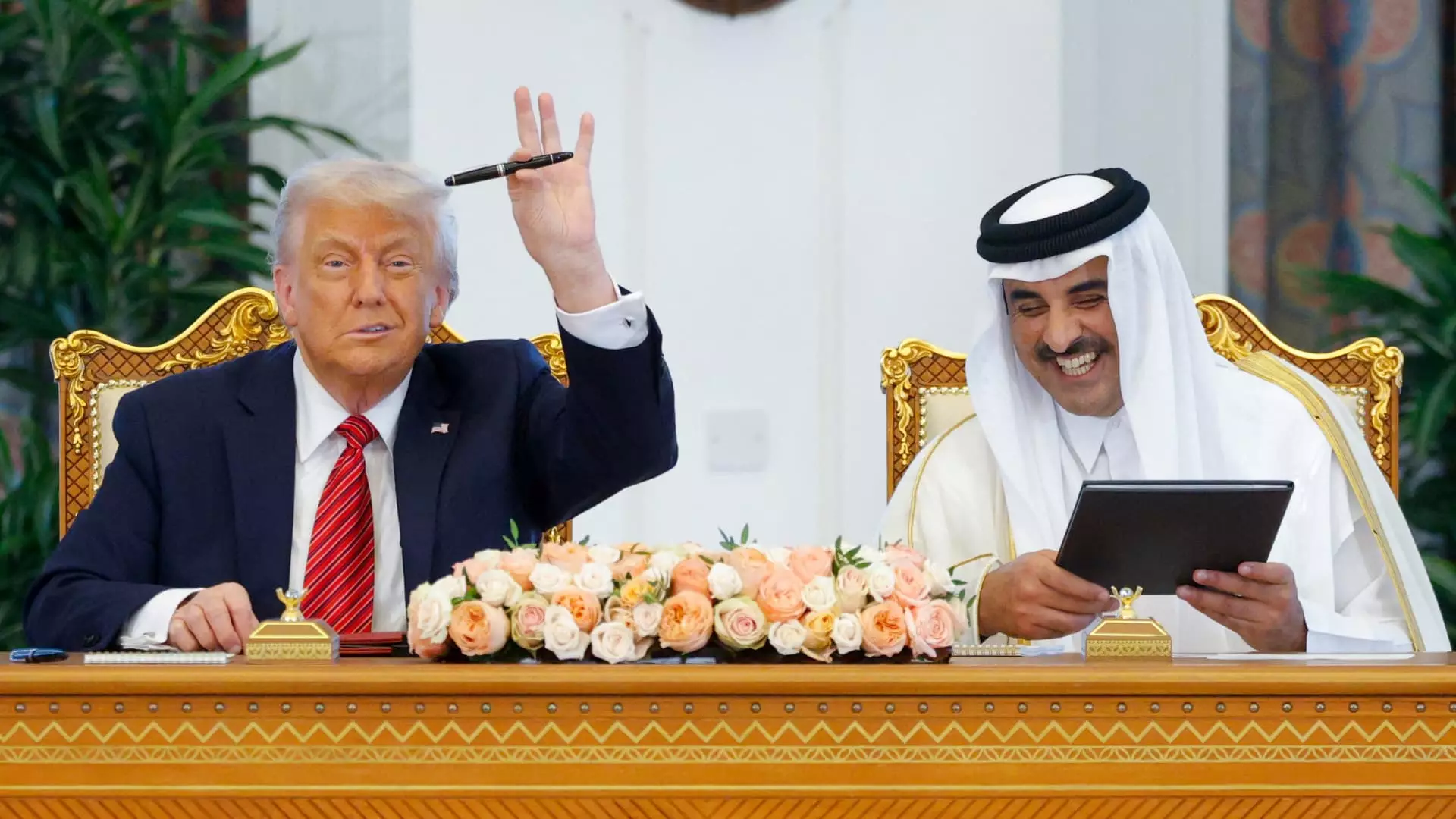In a world where international diplomacy often dances on the razor’s edge of morality, the recent controversy surrounding Qatar’s proposal to gift a $400 million Boeing 747 to former President Donald Trump raises significant ethical red flags. Sheikh Mohammed bin Abdulrahman al-Thani’s insistence that this transaction is merely a customary exchange between allies feels more like a desperate attempt to justify what many critics perceive as a shady deal aimed at currying favor. While he claims transparency and legality, it’s hard to view this diplomatic sonic boom as anything less than an attempt to buy influence, especially in an era where ethical guidelines seem to evaporate faster than air from a deflating balloon.
The notion that gifts of grandiose proportions fall within the realm of normalcy among allies is unsettling. In the delicate tapestry of international relations, such gestures invite scrutiny and skepticism. The Middle East has always been an arena for tit-for-tat relationships, but highlighting exchanges of luxury jets as a benign act of goodwill conveniently sidesteps the murkier implications of political indebtedness. When one government offers a gift so lavish, one cannot help but wonder about the conditions attached to it — to what extent has Qatar invested in shaping U.S. policy, particularly in the volatile landscape of global politics.
The Political Backlash
Trump’s approval of such a gift has triggered an outcry from opposition leaders, drawing attention to the potential breaches of the Foreign Emoluments Clause in the U.S. Constitution. By definition, this clause serves as a pivotal check against corruption, safeguarding the presidency from becoming a pawn in international bets. However, the current political landscape often feels more like a circus than a constitutional framework, where outrage ebb and flow based on party lines rather than common sense or legalities.
Even before the jet controversy, Trump was no stranger to political firestorms that question his ethics and motives. The juxtaposition of receiving a bombastic aircraft while at the same time engaging with foreign states underlines a glaring hypocrisy that Democrats have been eager to exploit. Representative Jamie Raskin’s assertion that the presidency must not be turned into a “get-rich-quick scheme” is not simply a political jab; rather, it resonates with every citizen who has become disillusioned with how the institution of the presidency is perceived — as a vessel for personal gain rather than a bastion of public service.
The Quest for Influence
If we accept Sheikh Mohammed’s premise that this is a “normal” gesture of allied cooperation, then we must also scrutinize what constitutes normalcy under such a framework. International diplomacy is laden with arrangements that most citizens could never fathom, often blurring the line between cooperation and coercion. Qatar’s overt investment in American military and economic systems through aircraft deals, while framed as mutually beneficial, speaks to a persistent pattern of nations leveraging their resources to bolster political alliances.
Additionally, the lavishness of the gift counters any argument that Qatar is merely engaging in routine statecraft. If other nations have gifted the U.S. with presents, they certainly haven’t done so in the billion-dollar range. This begs the question: Is Qatar making a long-term investment in American favor, or are they merely catering to a pocket of opportunism so prevalent in foreign dealings?
The Role of Lawmakers
The urgency expressed by lawmakers, particularly Democrats, to assert control over potential ethical violations stands as a testament to the legislative power that feels increasingly sidelined. The resolution calling for Congress to review such gifts is crucial in re-establishing boundaries that have significative legal weight. This scenario lays bare the tendency of the executive branch to overstepping its bounds, turning diplomatic goodwill into a transactional nightmare.
It has become imperative for Congress to act decisively—not merely as a reaction to political bickering but as a resolute stand against corruption embedded within the highest ranks of government. When the line between diplomacy and bribery becomes ever more tenuous, legislators must commit to holding powerful figures accountable for their actions. The responsibility of civic duty extends beyond allegiance to party affiliation; it is about upholding the laws designed to protect the integrity of democratic governance.
In a time where ethical lines are frequently blurred, the Qatar jet scenario serves as a potent reminder of the perils associated with unchecked power and the potential erosion of institutional integrity. As skepticism grows, it becomes increasingly clear that without vigilant oversight, this gleaming aircraft could mark not just an alliance but a descent into a murky world of influence peddling.


Leave a Reply